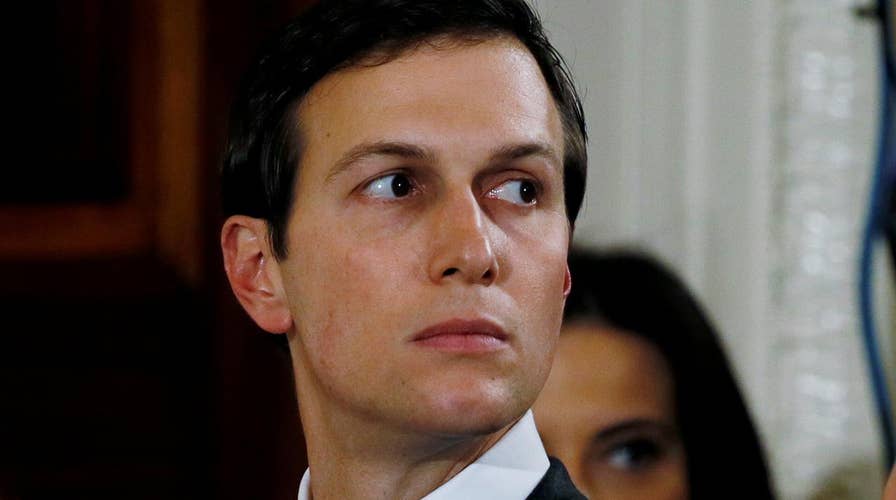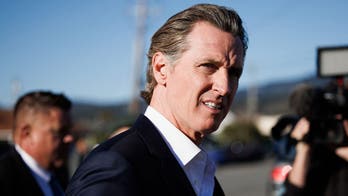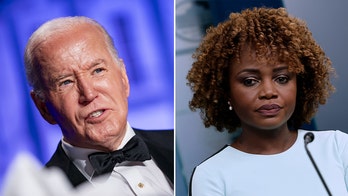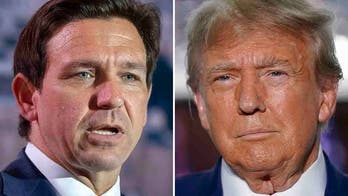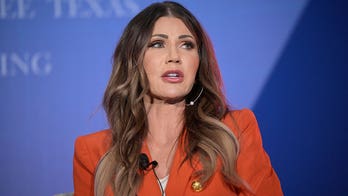Jared Kushner calls Russia meeting a waste of time
President Trump's son-in law and senior adviser denies allegations of collusion; chief intelligence correspondent Catherine Herridge reports from Capitol Hill
Jared Kushner got out ahead of the story before sunrise.
Knowing there would be saturation coverage of his closed-door Senate testimony in the Russia investigation, the president’s son-in-law today gave the press an 11-page statement with this bottom-line declaration: “I did not collude.”
Since the hearing was conducted in secret, Kushner had to know he would be vulnerable to selective leaks. So the senior White House official helped frame the media narrative, with some stories on his prepared testimony posting as early as 6 a.m.
His team also wanted to be transparent with the public, so they were playing to a broader audience than just the Intelligence Committee members.
That doesn’t mean everything he said should be taken at face value. But it’s worth examining his statement in depth. Given that he’s represented by Abbe Lowell, one of Washington’s toughest criminal lawyers, we can be sure that this statement was meticulously prepared.
Perhaps most important, it provides a different perspective on some of the accusations against him. And since Kushner doesn’t appear on television—“I am not a person that has sought the spotlight”—that perspective has been lacking in the Russia coverage.
Despite his camera-shy style, Kushner knew the television beast would have to be fed. He read a statement on the White House driveway after his Hill appearance, saying he hadn’t colluded and had no improper contacts with anyone—a clear concession to TV's need for video that will play in a loop every time the story is covered.
The statement provides plenty of details. Take the campaign meeting with Russians that was arranged by Donald Trump Jr. Kushner says he never saw the email chain in which an intermediary told the president’s son that the Russian government wanted to convey damaging information on Hillary Clinton. Says Kushner: “I actually emailed an assistant from the meeting after I had been there for ten or so minutes and wrote ‘Can u pls call me on my cell? Need excuse to get out of meeting.’” And he did leave early.
On the uproar over his “back channel” conversation with Russia’s ambassador after the election, Kushner says he didn’t make the suggestion. He says Sergey Kislyak wanted “generals” to talk to him about Syria asked if there was a secure line in the transition office. Since the answer was no, Kushner says he asked whether Kislyak “had an existing communications channel at his embassy we could use”—a request that went nowhere.
Now that may have been a misstep or simple naivete. But it counters the prevailing media narrative that Kushner floated the idea because he had something to hide.
Less clear is why, after turning down two subsequent invitations from Kislyak, Kushner agreed to his request to meet with Russian banker Sergey Gorkov, whose financial institution is under U.S. sanctions.
Perhaps the weakest part of Kushner’s argument is that he left these and other contacts off his security clearance form because of a miscommunication that led to a premature filing. On the other hand, Kushner left out all his other foreign contacts, which would make no sense unless there was a staff screwup.
The statement also adds the context that Kushner was in the middle of “a fast-paced campaign with thousands of meetings and interactions,” and he was a real estate developer and newspaper publisher who had never worked on a campaign. In fact, he says he forgot Kislyak’s name after their first, brief meeting after a Trump speech at Washington’s Mayflower Hotel.
Kushner is still on the hot seat, and as a Trump family member he has a big target on his back. But he showed a recognition today that this is a media battle as well as a legal and political one.
